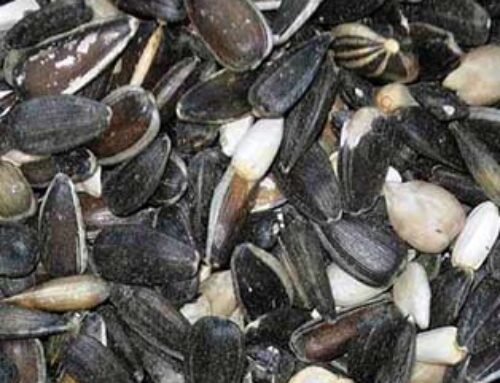Those of us who spend our money to provide birds with bird seed (and there are millions of us) can all be considered bird watchers. We watch through our windows and from our yards as the parade of winged ones ebbs and flows with each season. It is a never ending source of pleasure, education and entertainment.
I believe that everyone who fits into this demographic is ultimately concerned about the health and protection of birds. It is a dangerous world out there for our feathered friends and each year as the human population grows,

Too many birds return to territory that has been destroyed due to logging, farming or urban expansion
more habitat is lost and climate change impacts increase, making the world more dangerous for the birds. Providing wild bird food is an important and fairly easy step we can take to make their lives a bit easier, but there are many more things we can do to reduce the risks they face each and every day.
There are numerous ways to do this; some are more complex than others, but nevertheless working together we can make a difference for the birds and us. Three areas where we can each contribute are the following: Trying to prevent window collisions; keeping cats indoors; and reducing pesticide use around our home.
I wrote about window collisions a couple years ago. It is something all of us with bird feeders experience because the birds are drawn close to our homes and on occasion they fly into our windows, either because they have been suddenly frightened away from the feeders, or they scatter rapidly and randomly. Other times and most often it is because they do not see the window glass – what they see is a reflection of trees and sky.
It has been happening more frequently at our house in the past few weeks and I attribute it to birds that just hatched this year who are new to the world and not yet wise to the dangers. It could also be due to fall migration which has begun bringing more birds into the area. So far, there has only been one casualty; the others just glanced off the glass and flew away, but some I have picked up and brought inside the house and put in brown paper bags to have time to recover their senses and be safe from potential predators. Everyone can and should do this if they find a bird lying on the ground – alive, next to your home. Unless their injuries are serious they will revive and be able to go back out into the wild.
We have some stickers on our windows to try to break up the reflections, but I think it’s time to get some new ones and there are some more innovative ones out there. Some are made of UV materials so they really aren’t visible to us, but they are to the birds. Estimates put the number of birds killed each year by window collisions at 100 million to 1 billion. Many of these will be the result of hitting the urban towers of glass and steel.
Pesticides are so prevalent in our world today, especially in global agricultural practices that it can seem an overwhelming challenge, but we really can help reduce their impact if everyone with a yard and garden would cut back on their use. Millions of birds depend on insects at some point in their lives, especially when they are in the nest and need a protein boost. Hummingbirds are a good example. The majority of their diet is nectar throughout their lives, but parent birds will seek and find insects to feed their young.
Finally, keeping your housecat indoors is a task that while not always easy if your cat has been going outdoors, it can have a huge, positive impact on the wild bird population. No matter how sweet your feline may be to you and
others, it is programmed through its genes to hunt birds or small mammals. If you have feeders set up in the yard, they look like a buffet to your cat. No amount of bells on collars or declawing can stop their efficient hunting style. At the very least, keep them inside during the nesting season when just hatched birds and their parents are especially vulnerable.
By Kate Crowley



